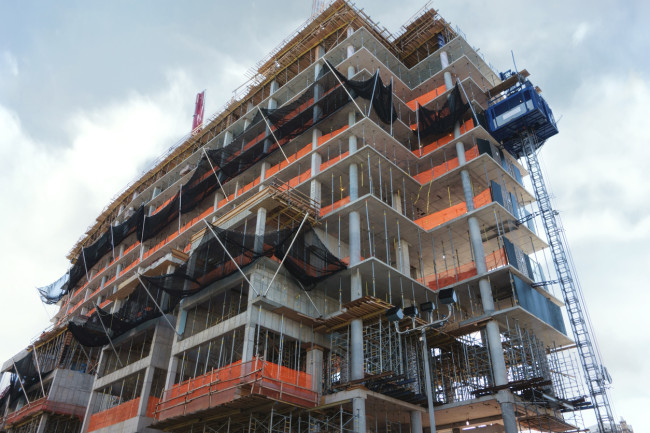I just found out the windows along the entire side of my apartment are going to get bricked up. What can I do?

If your bedroom is along a lot line you may have legal recourse, often stemming from the fact that lot line windows do not count for light and air.
I just found out my apartment has lot line windows—now they’re going to get bricked up along one entire side of my apartment. The seller never told me about this. What can I do?
Lot line windows run along the property line and are sometimes distinguished from regular windows because they have “chicken wire” embedded in them. However, that’s not always the case, so it’s understandable that you may not have realized the situation when you bought your apartment.
If your bedroom is along a lot line you may have legal recourse, often stemming from the fact that lot line windows do not count for light and air.
“In most cases, it would be illegal for you to be sold an apartment where the only windows in the bedrooms were along a lot line,” says Steve Wagner, a real estate attorney, and partner at the Manhattan law firm, Wagner Berkow & Brandt. “Developers should not be selling apartments with bedrooms that exclusively have lot line windows because they are not considered legally habitable rooms.”
Even if that’s not the case, there are additional steps you can take if you want to fight a developer threatening to block up your lot line windows.
“You should start by getting legal help to establish if there are any grounds to object to the proposed development or explore whether your building has a light and air easement that might prevent the windows from being lost,” says Wagner who has dealt with many air and light easements and development rights issues.
“Among other things, your attorney will analyze property records to see if there are restrictions that may prevent the developer’s plans. You might also be able to successfully challenge or negotiate with a developer who is seeking development right bonuses or to enlarge the building beyond what is ‘as-of-right’ under the City’s zoning resolution.”
Light and air easements
A successful legal challenge is possible if you find your building has a light and air easement.
“An easement agreement is a contract that protects your light and air and prevents a developer from bricking up your windows. A distance of 30 feet is required between a legal window and the next building for light and air purposes,” says Wagner.
Your building, whether it’s an older brownstone or a new condo building, may have already negotiated a light and air easement, in which case, uncovering it will likely put an end to a developer's plans to brick up your windows. The easement can be filed with the Department of Buildings.
“If your building is a new development, and your bedroom is on the lot line, check your offering plan to see if there is a light and air easement,” says Wagner.
Even though there may be only a few units affected by the proposed development, Wagner suggests getting your entire building on board with the issue. After all, if your property values are significantly diminished, that can bring down values for the entire building
How to challenge a developer’s plans
For the best possible coordinated challenge against the proposed development, hire an attorney who can look at the adjacent property applications to see if there are any issues that might prevent the developer from enlarging their building. Again, Wagner recommends rallying your entire building to join the effort.
It may be possible to get the developer to build away from the lot line so the lot line windows are not blocked up. “You may not get everything you want but usually you can get something and it’s worth it to save the light in your apartment,” Wagner says.
Leverage-wise, if the developer is doing anything that requires any additional city approval, or wants to use any not ‘as-of-right’ benefits, your attorney can set up a team of experts to slow the process down.
“For example, when representing clients like this, we have employed an adept architect who can sharp shoot the applications and try to stop the development entirely,” says Wagner. If the developer is violating any restrictions, your legal case and negotiating leverage will be stronger.
“If this is happening, you need someone with expertise to carefully evaluate the zoning, the proposed development itself and see whether or not something could be negotiated,” he says.
Negotiate with the developer
It may be that your building is the key that unlocks a developer’s plans to obtain additional development rights. You can use that leverage to your advantage. With the help of an attorney, you might be able to negotiate a merger of zoning lots and create the easement you need to protect your windows.
“It involves looking at several of the buildings in the area to see what is available and what can be done and maybe you can negotiate to preserve the light and air on the lot line windows,” says Wagner.
New York City real estate attorney Steven Wagner is a founding partner of Wagner, Berkow, & Brandt, with more than 30 years of experience representing co-ops, condos, as well as individual owners and shareholders. To submit a question for this column, click here. To arrange a free 15-minute telephone consultation, send Steve an email or call 646-780-7272.


























